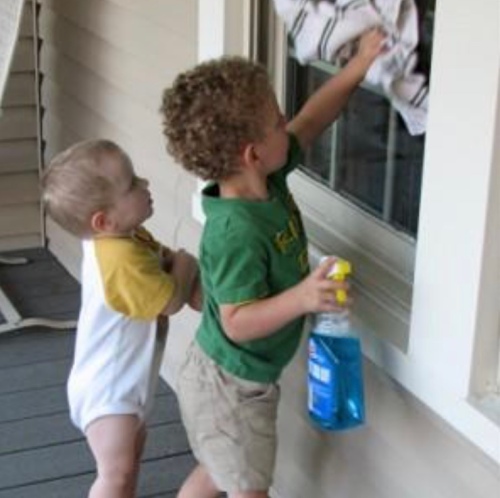10 Summertime Safety Suggestions
 Summertime is a lot of fun for families. Schedules tend to be more flexible, there are vacation trips, exciting adventures, and more time to enjoy living. While most of these qualities are terrific, with a change in routine sometimes comes accompanying hazards. We are creatures of habit, after all. We want your summer experience to be completely positive with no mishaps, so here are some ideas to help keep your kids safe. You’ll notice that these approaches will flow seamlessly into the fall after school restarts as well. Read on, and be careful out there!
Summertime is a lot of fun for families. Schedules tend to be more flexible, there are vacation trips, exciting adventures, and more time to enjoy living. While most of these qualities are terrific, with a change in routine sometimes comes accompanying hazards. We are creatures of habit, after all. We want your summer experience to be completely positive with no mishaps, so here are some ideas to help keep your kids safe. You’ll notice that these approaches will flow seamlessly into the fall after school restarts as well. Read on, and be careful out there!
- Set clear expectations
In his 1962 State of the Union address, President John F. Kennedy said, “The time to repair the roof is when the sun is shining.” Although Kennedy was talking about the need for strong national defense, the concept applies to effective parenting. Kids occasionally get themselves into terrible situations, and sometimes parents respond with, “Didn’t you know any better??” Well, frankly, maybe they didn’t. The saying common sense isn’t all that commonespecially applies to the juveniles living under your roof. Remember, with youth comes inexperience. It is the parent’s job to anticipate difficult or dangerous situations and establish clear boundaries ahead of time. Remember, a rule that’s not spoken or written is only an idea. - Meet the parents
This directive is much more serious than Robert De Niro and Ben Stiller’s 2000 comedy by the same name. Perhaps your child has not yet learned the savvy art of being a good judge of character. Hopefully you have! It is naive to assume that every family has the same values that yours does. Likewise, not every parent has the same skill of observation, insight, wisdom, and care as you. Before allowing your child (of any age) to spend time with new friends and their families, arrange an opportunity to meet the parents. That face-to-face interaction will either pacify or validate your apprehensions, helping you decide if your child spending time with this friend and family is beneficial or not. And don’t worry about what the other parents think, because your proactivity simply demonstrates your caring concern and that you expect the best for your child. - Location, location, location
When we were growing up, there was a 10:00 pm public service announcement on TV every night asking, “Do you know where your children are?” Even as a kid, I thought that was preposterous. Certainly, parents know the whereabouts of their children! But that’s not always the case. The location of that little tyke you brought home from the hospital is always known, of course, because babies can’t get very far on their own. But as they get older, they can travel. At what point does a parent notneed to know where their child is? Ten? Twelve? Sixteen? We recommend that as long as they’re living at your address, for safety’s sake, make it a good practice to know where they are. Always. As your child gets older, put the responsibility of communicating his whereabouts on him. And don’t rely on phone apps like Find My Friends. That’s cheating. Have conversations and expectations. - Safety in numbers
This concept is so simple, it’s frequently overlooked. Doing chores, walking to the store, swimming . . . everythingis safer in groups. Not only is there safety in numbers, but also accountability. We are strong supporters of family activities. But if the whole family can’t be together, one parent, sibling, or a friend is better than going solo. How many people are needed to create an appropriate safety net? King Solomon wrote, “Though one may be overpowered, two can defend themselves. A cord of three strands is not quickly broken” (Ecclesiastes 4:11-13). When you think about it, there’s a lot of wisdom there! If someone in a party of three gets injured, one person can stay with the hurt individual while the other goes for help. Three is an intentionally safe number. Oh, and use caution when deciding to leave kids at home alone. - Provide proper training
As grownups, some tasks have become second nature – cooking with heat, cleaning with chemicals, using power tools, sharpening your collection of ninja throwing stars. In these examples, obviously some training and supervision is necessary for children. But what about folding a camp chair? I’ve come close to pinching a finger clean off on one of those buggers! Never underestimate the importance of adequate training, even for jobs that seem simple. And equally important, foster an environment in which kids expectto receive instruction before embarking on new tasks. This creates a productive and safe relationship in which kids will learn to look for guidance proactively. Of course, alwaysgive the training when asked, no matter how simple it may seem.
The next several tips focus on cybersecurity. In our modern, digital world, it should come as no surprise that kids’ digital devices can unfortunately be a source of dangers, both tangible and intangible. Statistically, your child probably won’t be abducted by a pedophile she met online. But some kids are. Probably your child won’t get bullied online to the point of slipping into a suicidal depression. But some kids will. A loving parent wouldn’t let his child run around with sharp scissors presuming that they probably won’t fall and jab their eye out. Electronic devices have become so prevalent, they are almost invisible. But parents, we must be aware of and controlour children’s digital life. Most kids are quite literally incapable of making good choices about their electronics. Children are by definition immature and inexperienced. So fill that gap by providing the real leadership they require for their cyber world.
- Stake your claim
Think about all the electronic devises and services your kids have access to – phones, tablets, computers, television, internet, etc. If your family is typical, those conveniences were bought and paid for by you, the parent. Yet often, children will claim devices like personal property and become very territorial. Then a weird atmosphere results in which the devices become ‘none of your business,’ and secrecy and danger can result. For safety’s sake, claim your rightful ownership over these devices! Know all your kids’ passwords. Establish clear restrictions. Assert your authority and make sure everyone understands that these devices are your property, on loan according to your terms. - Monitor usage
In the world of business management, you often hear the adage people respect what you inspect. This is so true! Your child will be appropriately accountable when he knows you will be following up to check devise use. Be aware, there are apps out there that create ‘dummy’ home screens on a phone so the first glance is fake. Going deeper into the folders will lead to a place where another password leads to the phone’s real content. Kids often go to great lengths to maintain their privacy, so parents need to become very tech savvy. There are tools available to help parents control the content of the various devices on their plans. Contact your service provider for details. The important part is to not just make a threat to check, but actually follow up on a routine basis. - Set limits
We routinely hear stories of students who are allowed to go to bed with their phones, feign going to sleep, then surf the web and text their friends all night. It’s no small wonder students struggle staying awake in class! Parents desperately need to set limits and say ‘no’ regarding electronics. Set limits on how much screen time your kids can have each day. Set limits on when it’s time to put devices away in the evening. Set limits on how many social media apps your child participates in (some kids use up to SIX). We are observing a generation growing up with deficient communication skills and genuinely addicted to their tech. The limits you enforce now will help give your kids a more balanced and successful life later. And if your establishment of reasonable boundaries is met with fits of rage, the silent treatment, or panic resulting from ‘not being able to live without’ their devices, that’s just additional assurance that you’re doing the right thing! - Establish electronics-free zones
There are two areas in your home that will be instantly improved when declared free of electronics: the dinner table and the bedroom. Mealtime conversation will be better if phones are kept away, but that’s not a safety concern. Electronics in the bedroom, on the other hand, can become dangerous. It has been our experience that typically no good comes from having electronics of any kind in the bedroom. We have known instances of well behaved, mild mannered kids that you would never suspect who ventured into very dark places behind the closed doors of their bedrooms. Shame and embarrassment are dangerous demons to tame. Be the champion of your child’s mental, emotional, psychological, and spiritual safety by gifting them with a space free from the peer pressure, intrusion, and temptation of the outside world. Keep the desktop, laptop, TV, video games, phones, and all other devices out in a visible common space so there’s no opportunity for secrecy. - Communicate!
When considering safety, communication is critical. When everyone in a family is open and honest, it’s much less likely that surprises will occur. Create an atmosphere in which full disclosure is the norm. This is different from interrogation. Older kids especially will shut down when they feel like they’re being grilled. “Where are you going? What will you be doing? Who will you be with? Are you wearing clean underpants?” But instead spend some time together every day talking about recent events, parents and kids alike taking turns. Then after discussing what happened recently, talk about upcoming plans. Parents, talk about your favorite coworkers and why you enjoy working with them. Then allow the kids to talk about their favorite pals, and why they’re fun to hang around. Make it natural! Replacing text messages with real, face-to-face conversations is a great way to really know each other and sense each other’s hearts. Then communication becomes open, honest, productive, and leads to improved safety.
This concludes our four-part summer series. We hope the rest of your summer is safe, responsible, and filled with chores and family! Best wishes to you all!

